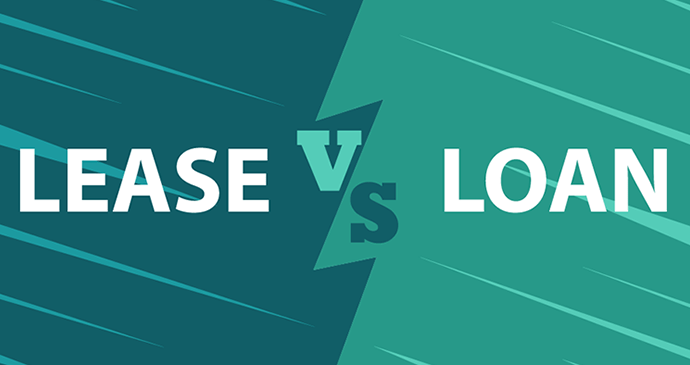Becoming a loan officer can be a rewarding career choice, especially for those interested in finance, customer service, and real estate. In Oregon, the process to become a licensed loan officer involves meeting certain state and federal requirements, completing necessary training, and passing exams. Whether you’re interested in working with residential loans, commercial loans, or another financial product, becoming a loan officer requires careful preparation and an understanding of both the industry and state-specific regulations.
In this detailed guide, we will break down the steps to becoming a loan officer in Oregon, including education, licensing, job responsibilities, and tips for succeeding in the field.
What is a Loan Officer?
A loan officer is a financial professional who helps individuals and businesses secure loans from financial institutions. Loan officers work with clients to assess their financial situations, guide them through the loan application process, and recommend suitable loan products. In Oregon, loan officers work primarily in mortgage, commercial, or consumer lending.
Loan officers are often employed by banks, credit unions, mortgage companies, and other financial institutions. They play a critical role in assessing risk, reviewing loan applications, and ensuring that borrowers meet the necessary qualifications for approval.
Step-by-Step Guide to Becoming a Loan Officer in Oregon
1. Meet Basic Eligibility Requirements
Before pursuing a career as a loan officer in Oregon, you must ensure that you meet the basic eligibility criteria. These include:
- Age Requirement: You must be at least 18 years old to become a loan officer.
- Legal Residency: You must be a legal resident of the United States.
- Criminal Background: A clean criminal background is required. Loan officers are typically subject to a background check, especially since they will be handling sensitive financial information and customer transactions. Any serious criminal history (such as fraud or theft) could disqualify you.
2. Complete Your Education
In Oregon, a formal college degree is not required to become a loan officer. However, it is highly recommended to pursue education in finance, economics, business, or a related field. A high school diploma or equivalent (GED) is the minimum requirement, but a bachelor’s degree can increase your earning potential and make you more competitive in the field.
A degree in finance, accounting, economics, or business administration will provide you with the foundational knowledge necessary for a successful career in lending, including understanding credit, financial analysis, and business operations.
Some loan officers also choose to pursue certifications or short-term finance courses to develop a deeper understanding of lending products and market trends. The more education you have, the better equipped you’ll be to handle complex loan applications and build relationships with clients.
3. Gain Experience in the Financial Industry
While a degree may help, experience in finance or banking is often essential to becoming a successful loan officer. Many loan officers start in entry-level positions within a bank, mortgage company, or credit union, such as a bank teller, customer service representative, or loan processor. This experience will give you exposure to how loans are processed, how clients interact with financial institutions, and the general flow of the lending process.
It is also beneficial to gain sales experience as loan officers need strong communication and persuasion skills. Loan officers are, in many ways, salespeople who must be able to explain complex financial terms and make recommendations based on the client’s unique financial situation.
4. Complete Pre-Licensing Education
In Oregon, as required by the National Mortgage Licensing System (NMLS), you must complete pre-licensing education if you want to work as a mortgage loan originator (MLO). The pre-licensing education requirement is 20 hours of training. This training covers topics such as:
- Federal and state lending laws
- Ethics and professional responsibility
- Loan origination and processing
- Mortgage products and terminology
- Fair lending practices and anti-discrimination laws
- The role of credit in lending
The 20 hours of education can be completed through an NMLS-approved provider. Many educational institutions offer online courses that meet these requirements, making it easier to balance work and education.
5. Pass the NMLS Licensing Exam
Once you’ve completed the required pre-licensing education, you will need to pass the NMLS exam. The exam is designed to test your knowledge of federal and state lending laws, ethical practices, and general mortgage products. In Oregon, the exam consists of:
- A National component: This covers federal lending laws and regulations.
- A State component: This tests your knowledge of Oregon’s specific laws and regulations regarding mortgage lending.
The exam is typically administered at Pearson VUE testing centers. The fee for taking the exam is approximately $110. To pass, you need a score of 75% or higher on both the national and state sections.
If you don’t pass the exam on your first attempt, you can retake it after a waiting period. You are allowed to retake the exam multiple times, but each attempt will require an additional fee.
6. Submit Your NMLS Application
Once you’ve passed the exam, you will need to apply for your Mortgage Loan Originator (MLO) license through the NMLS. This process involves submitting an application, paying a fee (usually around $300), and providing the following documents:
- Proof of your completed pre-licensing education
- Background check and fingerprints
- Proof of passing the NMLS exam
- Employment history
The NMLS application process also requires you to disclose any criminal history or financial issues (e.g., bankruptcies, judgments) that might impact your ability to work in the industry.
7. Complete Background Check and Fingerprinting
A key step in becoming a licensed loan officer in Oregon is passing the background check. As part of the application process, you will need to submit to a fingerprinting process to ensure that you have no criminal history that would disqualify you from working in the financial sector. The NMLS requires this background check as part of the licensing process for mortgage loan originators.
8. Obtain and Maintain Your License
Once your application is approved and you pass all necessary checks, you’ll receive your MLO license from the state of Oregon. It’s important to keep in mind that your license must be renewed annually. To maintain your license, you’ll need to:
- Complete 8 hours of continuing education each year, as required by NMLS. This includes 3 hours of federal laws, 2 hours of ethics, 2 hours of nontraditional mortgage products, and 1 hour of elective topics.
- Submit a renewal application and pay the renewal fee.
9. Find a Job as a Loan Officer
After obtaining your MLO license, you can start looking for a job as a loan officer. Most loan officers work for banks, credit unions, mortgage lenders, and independent financial firms. You’ll be responsible for managing a portfolio of loan clients, assessing their creditworthiness, guiding them through the application process, and recommending appropriate loan products.
10. Consider Specializing
While many loan officers work with residential mortgages, there are other types of loans you can specialize in, such as:
- Commercial loans for businesses
- Auto loans
- Student loans
- Personal loans
Specializing in a specific area can help you stand out in the industry and become an expert in a particular type of lending.
Tips for Succeeding as a Loan Officer in Oregon
Becoming a successful loan officer requires more than just completing educational requirements and passing exams. Here are some tips to help you excel in the field:
1. Build Strong Relationships
A significant part of being a loan officer is working with clients. The more you connect with clients, understand their needs, and offer solutions, the better your success in this field will be.
2. Stay Informed
The mortgage industry is always evolving, and staying up-to-date with the latest trends, regulations, and best practices is essential. Regularly attend industry seminars, continue your education, and read industry publications.
3. Develop Sales and Negotiation Skills
Loan officers often need to negotiate terms and sell loan products. Strong sales and negotiation skills will help you close deals and build a strong client base.
4. Utilize Technology
Many loan officers use software and technology platforms to streamline the loan process. Familiarize yourself with the latest mortgage technology to improve efficiency and accuracy in your work.
Conclusion
Becoming a loan officer in Oregon can be a fulfilling and lucrative career choice, especially if you enjoy working in finance and helping people secure the funding they need. By meeting the basic eligibility requirements, completing the necessary education and licensing steps, and staying informed about industry changes, you can set yourself up for success in this field.
By following the steps outlined in this guide, you’ll be well on your way to launching a career as a loan officer in Oregon. Whether you want to work in residential or commercial lending, the key is persistence, education, and a dedication to providing excellent service to your clients.
FAQ: How to Become a Loan Officer in Oregon
1. What is a loan officer?
A loan officer is a financial professional who helps individuals and businesses obtain loans from financial institutions, such as banks or mortgage lenders. Loan officers assess the financial situations of borrowers, recommend appropriate loan products, and guide them through the application process.
2. What are the basic requirements to become a loan officer in Oregon?
To become a loan officer in Oregon, you must:
- Be at least 18 years old.
- Be a legal U.S. resident.
- Pass a background check and fingerprinting process.
- Complete required pre-licensing education (20 hours of mortgage training).
- Pass the NMLS exam (National Mortgage Licensing System exam).
- Submit an application and pay the required fees to obtain a Mortgage Loan Originator (MLO) license.
3. Do I need a degree to become a loan officer in Oregon?
No, a formal degree is not required, but a high school diploma or equivalent is necessary. However, pursuing a degree in finance, business, or economics can give you an edge and provide a stronger foundation for a career in lending. Some loan officers also take relevant courses or certifications to deepen their knowledge.
4. What is the NMLS exam?
The NMLS exam is a licensing exam required for mortgage loan originators. It tests your knowledge of federal and state lending laws, ethics, mortgage products, and more. In Oregon, passing this exam is mandatory to become a licensed loan officer, and you need a score of at least 75% to pass.
5. What kind of education is required to become a loan officer in Oregon?
In Oregon, you are required to complete 20 hours of pre-licensing education from an NMLS-approved provider. This education covers federal and state mortgage laws, ethical practices, loan origination, and the role of credit in lending.
6. How long does it take to become a loan officer in Oregon?
Becoming a loan officer in Oregon typically takes several months. The process involves:
- Completing the required pre-licensing education (which can take a few weeks).
- Passing the NMLS exam.
- Submitting your application to the state.
- Completing a background check and fingerprinting.
Overall, it may take anywhere from 3 to 6 months to meet all the requirements and obtain your license.
7. Do I need work experience to become a loan officer in Oregon?
Work experience is not strictly required to become a loan officer, but many loan officers gain experience in entry-level roles in banking or finance (e.g., bank teller, customer service representative, or loan processor) before transitioning into the loan officer role. Experience in sales, finance, or customer service can be beneficial for building the necessary skills for this position.
8. How much does it cost to become a loan officer in Oregon?
The total cost to become a loan officer includes:
- Pre-licensing education: Fees for 20 hours of education typically range from $150 to $400.
- NMLS exam fee: The cost for taking the exam is approximately $110.
- Application and licensing fee: The fee for submitting your application to the state is typically $300.
Overall, the costs can range from $500 to $800 depending on the courses, exam fees, and licensing costs.
9. How do I apply for a loan officer license in Oregon?
After passing the NMLS exam, you need to submit your application for a Mortgage Loan Originator (MLO) license through the NMLS system. The application involves:
- Submitting required documentation (such as proof of pre-licensing education).
- Paying the application fee (typically $300).
- Completing a background check and fingerprinting.
Once approved, you will receive your MLO license from the state.
10. What is a background check and why is it required?
A background check is a process that evaluates your criminal history and financial history to ensure that you meet the ethical and legal standards required for working as a loan officer. You will need to submit fingerprints as part of this process. A clean criminal record is typically required, and any serious offenses, especially related to financial crimes, may disqualify you from obtaining a license.
11. What does a loan officer do on a daily basis?
Loan officers assist individuals and businesses in obtaining loans. On a daily basis, they:
- Meet with clients to understand their financial needs.
- Analyze clients’ financial data (e.g., income, credit scores, debt).
- Help clients choose suitable loan products (e.g., mortgages, personal loans).
- Guide clients through the loan application and approval process.
- Work with underwriters and processors to ensure the loan is approved.
- Build and maintain client relationships and manage a portfolio of borrowers.
12. What skills do I need to become a successful loan officer?
Successful loan officers possess a combination of technical and interpersonal skills, including:
- Strong communication skills: To explain complex loan products and guide clients through the application process.
- Sales skills: To sell loan products and build a client base.
- Attention to detail: To ensure that loan applications are processed accurately.
- Analytical skills: To assess financial data and determine clients’ eligibility for loans.
- Customer service skills: To foster positive relationships and resolve client issues effectively.
13. What types of loans do loan officers handle?
Loan officers in Oregon can work in various types of lending, including:
- Residential mortgages: Helping clients secure loans to purchase homes.
- Commercial loans: Assisting businesses in obtaining financing for operations or expansion.
- Consumer loans: Offering personal loans or auto loans to individuals.
- Refinance loans: Helping homeowners or businesses refinance existing loans.
14. Can I specialize as a loan officer?
Yes, many loan officers specialize in certain types of loans, such as mortgage lending, commercial lending, or auto lending. Specializing can allow you to become an expert in a specific area and develop a niche market.
15. How do I maintain my loan officer license in Oregon?
To maintain your license, you must complete 8 hours of continuing education each year, which includes:
- 3 hours of federal laws and regulations.
- 2 hours of ethics.
- 2 hours of nontraditional mortgage products.
- 1 hour of elective topics.
You will also need to submit a renewal application and pay the annual licensing fee to keep your MLO license active.




